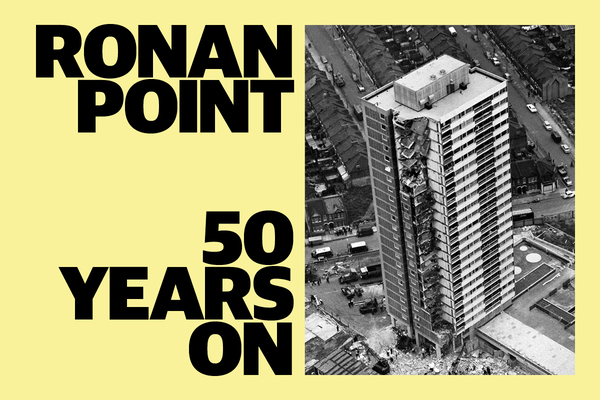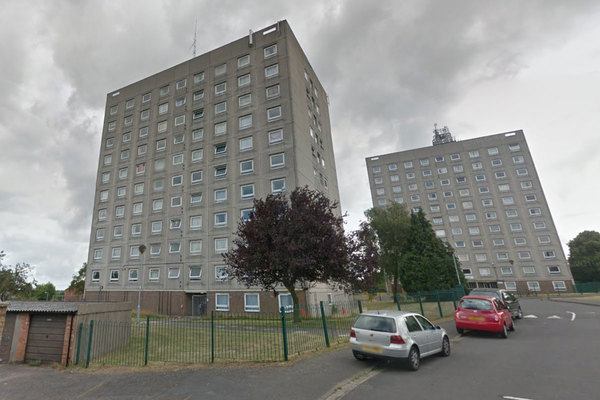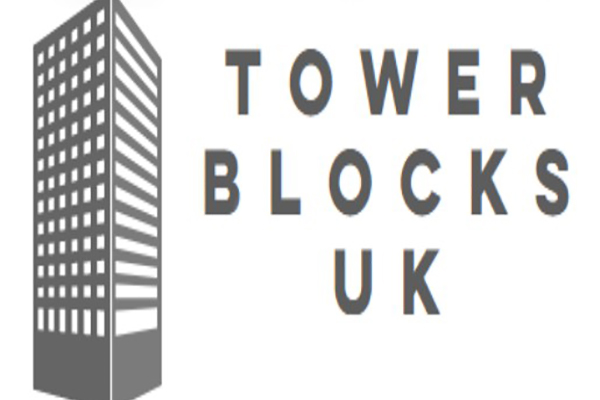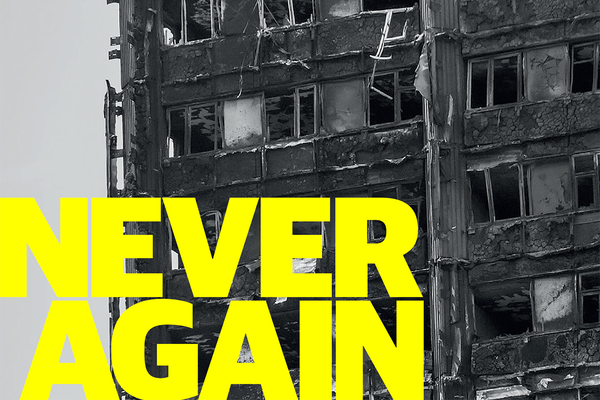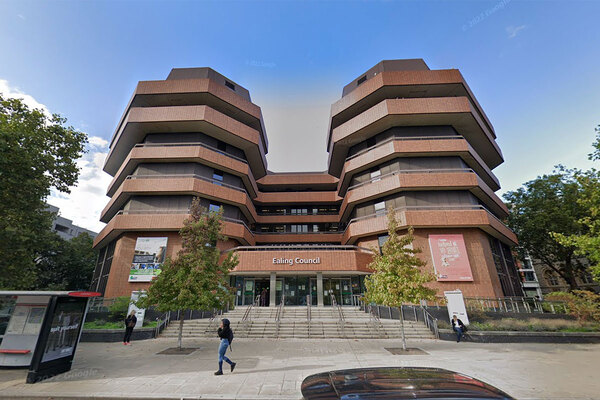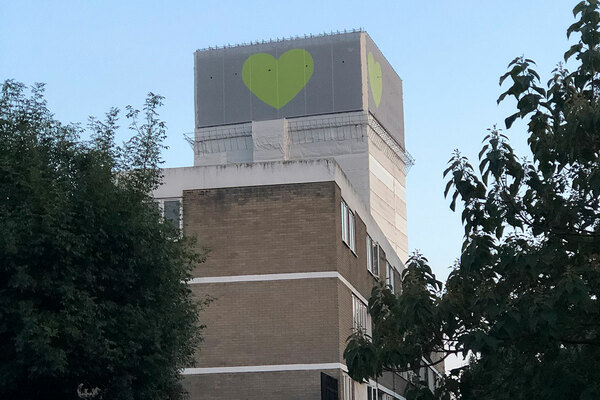You are viewing 1 of your 1 free articles

Ronan Point 50 years on: are tenants being listened to on safety?
On the 50th anniversary of the collapse of Ronan Point, tower block safety campaigner Frances Clarke questions whether Dame Judith Hackitt is really listening to tenants
Throughout this week we are publishing a number of articles on building safety to mark the 50th anniversary of the Ronan Point disaster
A great deal is at stake.
The Grenfell Tower tenants said loudly that their block was a fire risk. No-one in power was willing to listen and 71 people died.
We had a completely different experience during the Ronan Point campaign. Ronan Point, which partially collapsed 50 years ago this week, was rebuilt and re-inhabited.
In 1982 the first tower blocks’ campaign national conference brought together a range of tenants, experts, community workers and activists.
“Pressure from tenants was enormous.”
During the conference, tenants of Ronan Point spoke to architect Sam Webb and told him of their concerns: they could smell food being cooked many floors below, they could clearly hear the conversations and TV programmes of neighbours far away.
Mr Webb responded by carrying out a survey of the flats during which he dropped a coin between the floor and wall and it disappeared, demonstrating that the flats were not sealed units, and fire and fumes could spread. Regulations were breached.
Pressure from tenants was enormous.
Newham Council voted to empty the block and they offered it to the Building Research Establishment (BRE) so that they could test it thoroughly.
The testing process was very transparent. A flat was set on fire to test one hour compartmentation – after 11 minutes engineers were seen to be scurrying out of the flat above as fumes and flames travelled upwards.
The fire had to be extinguished, the test had failed, the flat couldn’t contain a fire for one hour.
Structural investigations took place which revealed that the H2 joints could not be relied upon to hold the block up, they could not withstand a pressure of 2.5 psi. Instead of being packed with concrete, they contained newspaper and tin cans.
“Effective partnerships can exist between engineers, architects, politicians, tenants, community workers and the media.”
The Tower Blocks Campaign and Newham Council worked together to ensure that tenants were informed and involved throughout.
There were frequent meetings, with free transport and council-run creches. ‘Experts’ were required to talk in plain English and the council funded independent technical advice for tenants.
This experience showed us that effective partnerships can exist between engineers, architects, politicians, tenants, community workers and the media.
Are tenants being listened to now, in the aftermath of Grenfell? Sadly, the example of the remaining large panel system blocks, blocks like Ronan Point, is not positive.
Residents of the Ledbury Estate had raised concerns about gaps in their flats for years, their concerns heightened after the Grenfell fire. Resident Danielle Gregory’s questioning of the Council and of Arups, their consultants, about the existing ‘stay put’ policy was not welcomed.
Nonetheless she was proven right, resulting investigations showed that the flats could not contain a fire for one hour.
“It is the efforts of tenants that brought large panel system construction to the attention of Dame Judith.”
Tenants went on to force the examination of structural joints and again the joints could not withstand a pressure of 2.5psi – they should not have had gas or people in the flats.
Would this information have come to light without serious tenant pressure? It is the efforts of these tenants that brought large panel system construction to the attention of Dame Judith.
In these examples, a change in building regulation would not have solved the problem as these blocks were in breach of current regulations.
So the role tenants played was to alert authorities to a dangerous situation. Why do tenants, such as these, have to work so hard to be listened to?
Why can’t landlords work in partnerships with tenants, as with the Ronan Campaign? Will Dame Judith’s Review properly address tenants’ voice?
Will she ensure that a legally enforceable pathway is created for tenants to report their safety issues when their landlords do not respond appropriately to their concerns?
Are you listening Dame Judith, have you heard?
Frances Clarke, tower block campaigner and co-founder of Tower Blocks UK
Tower blocks UK
Tower Blocks UK is a website set up by campaigner Frances Clarke, building safety expert Sam Webb and local government and health professional Liz Lowe.
It aims to share information and resources for people who are concerned about tower block safety.
The site aims to help residents be heard and share examples of good practice. The aim is also to share data and online training resources.
Will you engage, do you have something to offer? Can you help develop resources, can you help provide tower block residents with information, support, technical guidance, are you an architect or an engineer, a fire safety expert, a lawyer, a community worker, a journalist? Will you join our pro bono panel? Can you help make it NEVER AGAIN? Contact: frances@towerblocksUK.com
Ronan Point: 50 years on
We have published a series of articles to mark the 50th anniversary of Ronan Point:
Are tenants being listened to on building safety? Tower block safety campaigner Frances Clarke questions whether Dame Judith Hackitt is really listening to tenants
The tower blocks that time forgot Fifty years ago councils were told to assess high-rise buildings that were similar to Ronan Point and strengthen them where necessary. So why are problems with some of the blocks still emerging?
One man’s 50-year battle to improve tower block safety Meet architect Sam Webb, who has been campaigning on safety in tower blocks since the disaster at Ronan Point
The worrying legacy of a disaster Jules Birch reflects on what we can learn from the Ronan Point disaster
Watch a new film about Ronan Point Filmmaker Ricky Chambers, whose grandparents and mother lived in Ronan Point, has made a film telling people’s stories of the ill-fated block. Watch the film and read Mr Chambers’ comments on why he made it
The dangers of large panel system construction Building safety expert Sam Webb explains why the system of construction used at Ronan Point was flawed, and how it was used in other buildings still occupied today
Never Again campaign
In the days following the Grenfell Tower fire on 14 June 2017, Inside Housing launched the Never Again campaign to call for immediate action to implement the learning from the Lakanal House fire, and a commitment to act – without delay – on learning from the Grenfell Tower tragedy as it becomes available.
One year on, we have extended the campaign asks in the light of information that has emerged since.
Here are our updated asks:
GOVERNMENT
- Act on the recommendations from Dame Judith Hackitt’s review of building regulations to tower blocks of 18m and higher. Commit to producing a timetable for implementation by autumn 2018, setting out how recommendations that don’t require legislative change can be taken forward without delay
- Follow through on commitments to fully ban combustible materials on high-rise buildings
- Unequivocally ban desktop studies
- Review recommendations and advice given to ministers after the Lakanal House fire and implement necessary changes
- Publish details of all tower blocks with dangerous cladding, insulation and/or external panels and commit to a timeline for remedial works. Provide necessary guidance to landlords to ensure that removal work can begin on all affected private and social residential blocks by the end of 2018. Complete quarterly follow-up checks to ensure that remedial work is completed to the required standard. Checks should not cease until all work is completed.
- Stand by the prime minister’s commitment to fully fund the removal of dangerous cladding
- Fund the retrofitting of sprinkler systems in all tower blocks across the UK (except where there are specific structural reasons not to do so)
- Explore options for requiring remedial works on affected private sector residential tower blocks
LOCAL GOVERNMENT
- Take immediate action to identify privately owned residential tower blocks so that cladding and external panels can be checked
LANDLORDS
- Publish details of the combinations of insulations and cladding materials for all high rise blocks
- Commit to ensuring that removal work begins on all blocks with dangerous materials by the end of 2018 upon receipt of guidance from government
- Publish current fire risk assessments for all high rise blocks (the Information Commissioner has required councils to publish and recommended that housing associations should do the same). Work with peers to share learning from assessments and improve and clarify the risk assessment model.
- Commit to renewing assessments annually and after major repair or cladding work is carried out. Ensure assessments consider the external features of blocks. Always use an appropriate, qualified expert to conduct assessments.
- Review and update evacuation policies and ‘stay put’ advice in the light of risk assessments, and communicate clearly to residents
- Adopt Dame Judith Hackitt’s recommended approach for listening to and addressing tenants’ concerns, with immediate effect
CURRENT SIGNATORIES:
- Chartered Institute of Housing
- G15
- National Federation of ALMOs
- National Housing Federation
- Placeshapers

